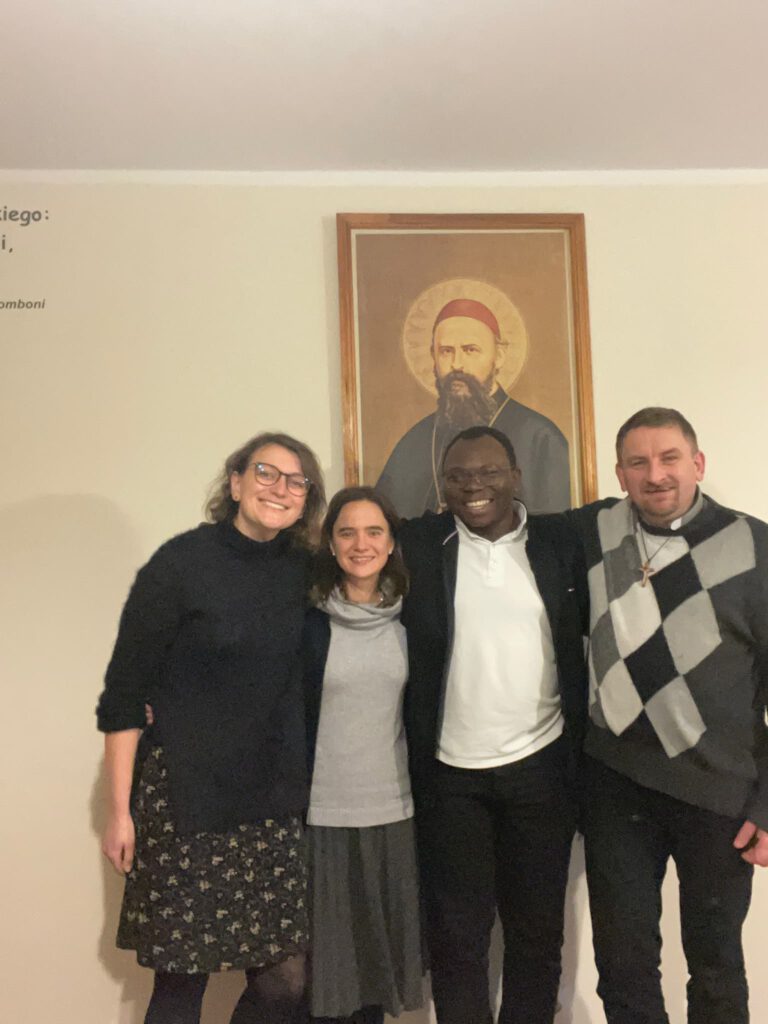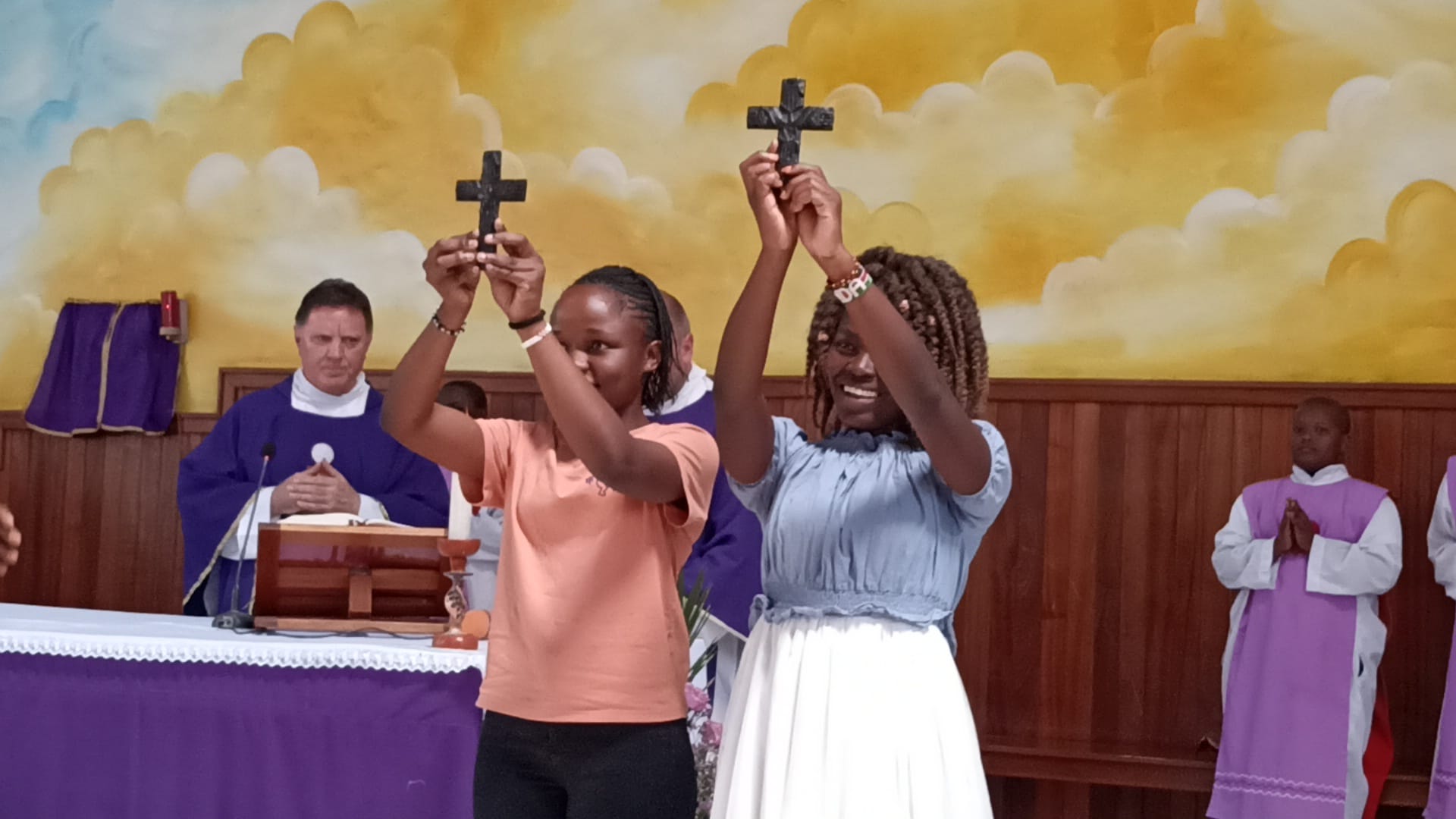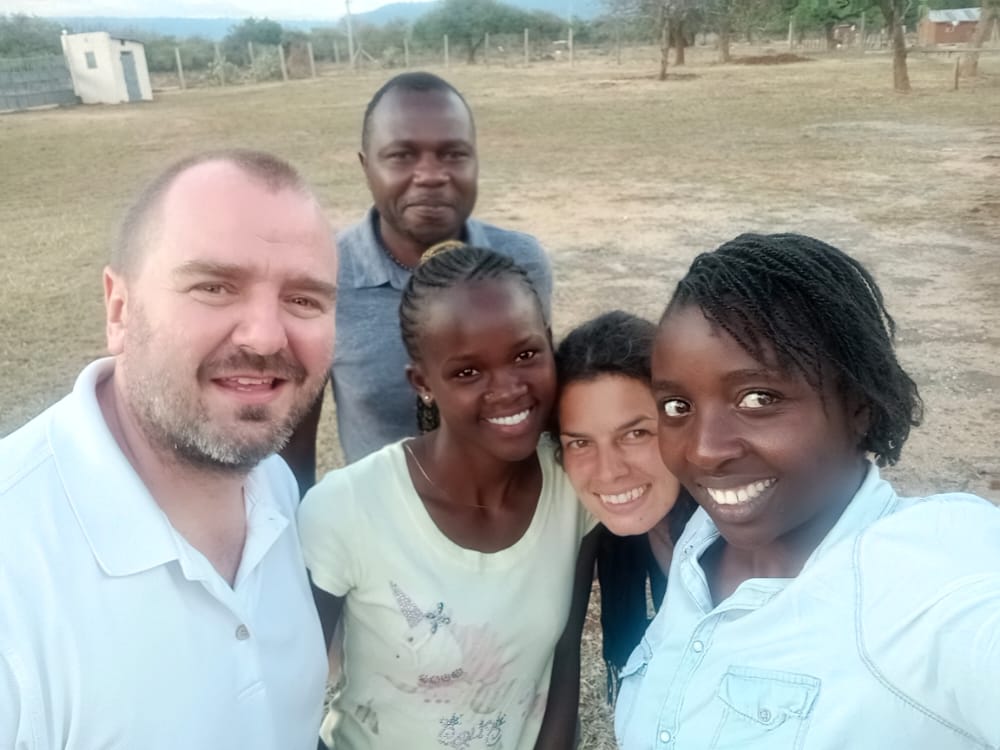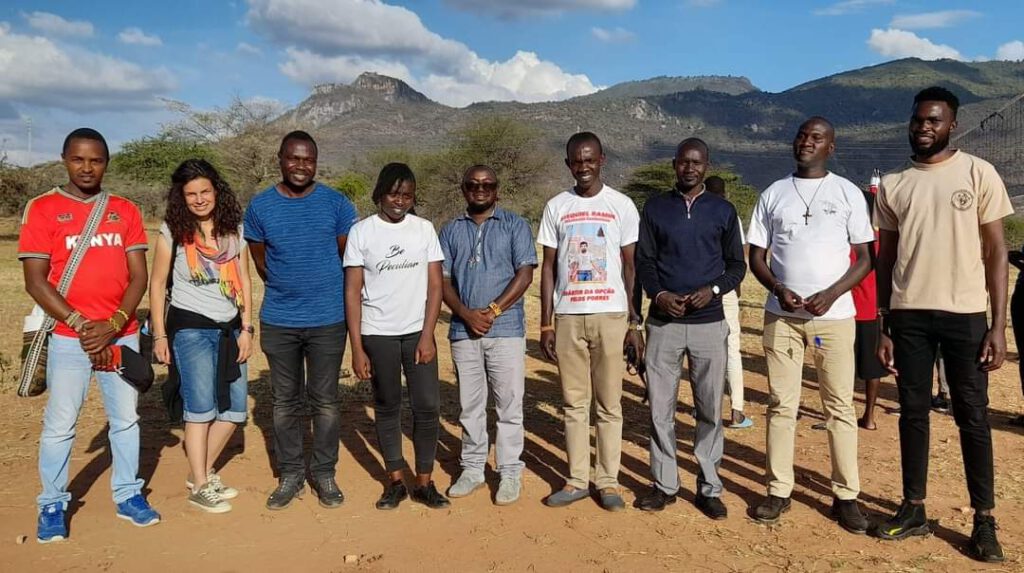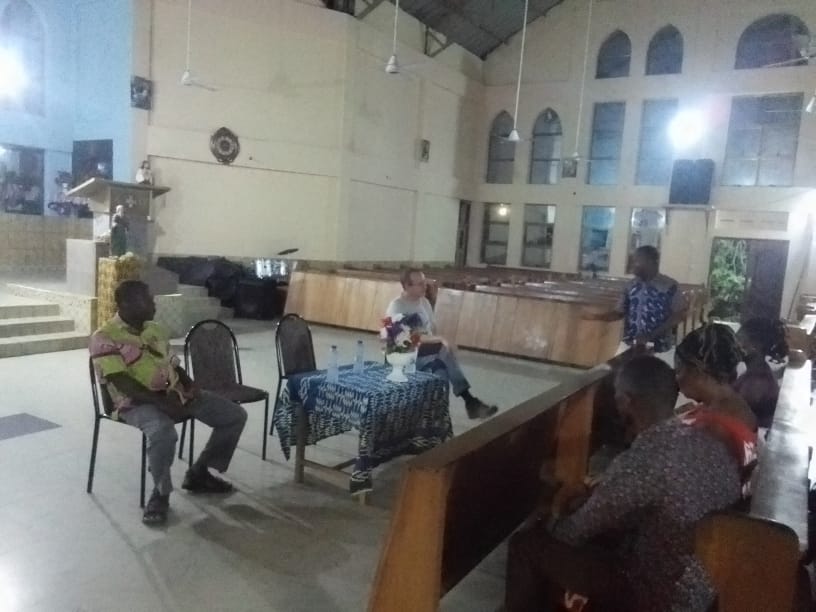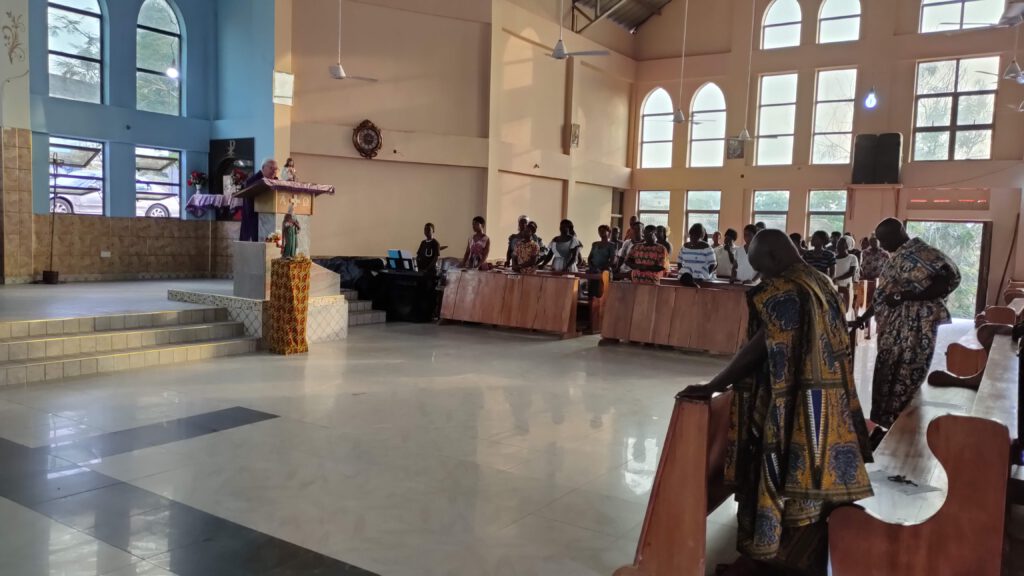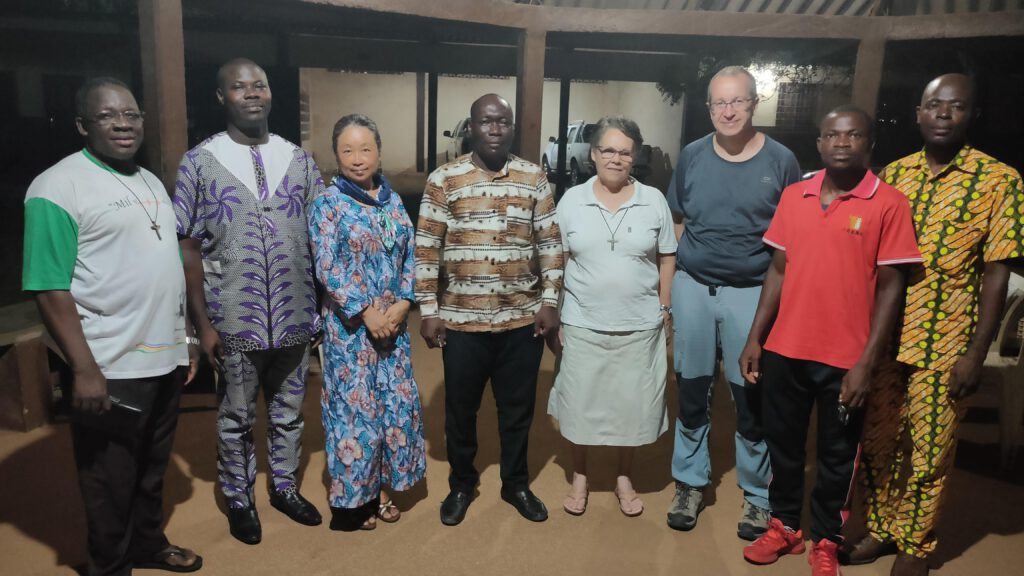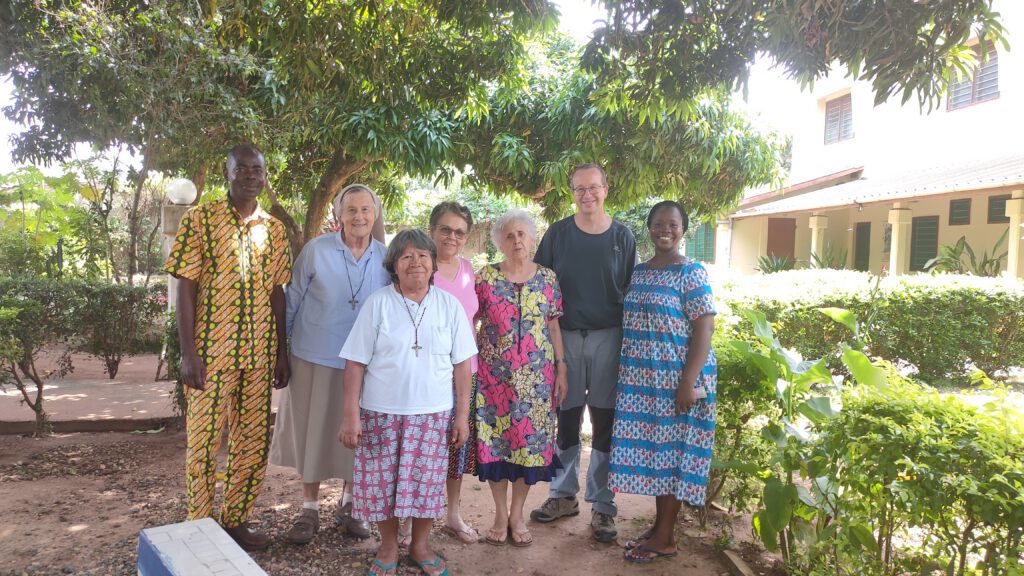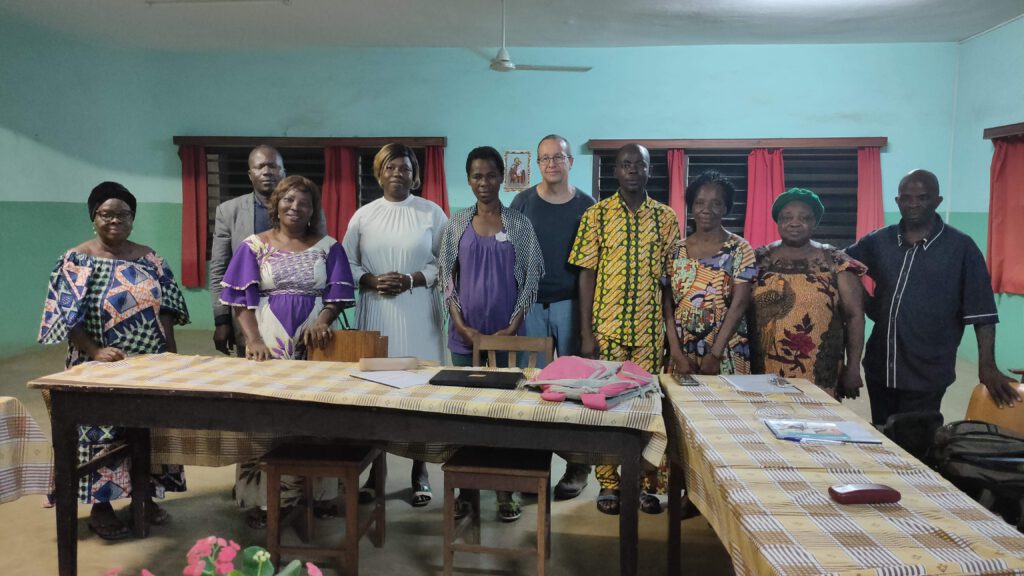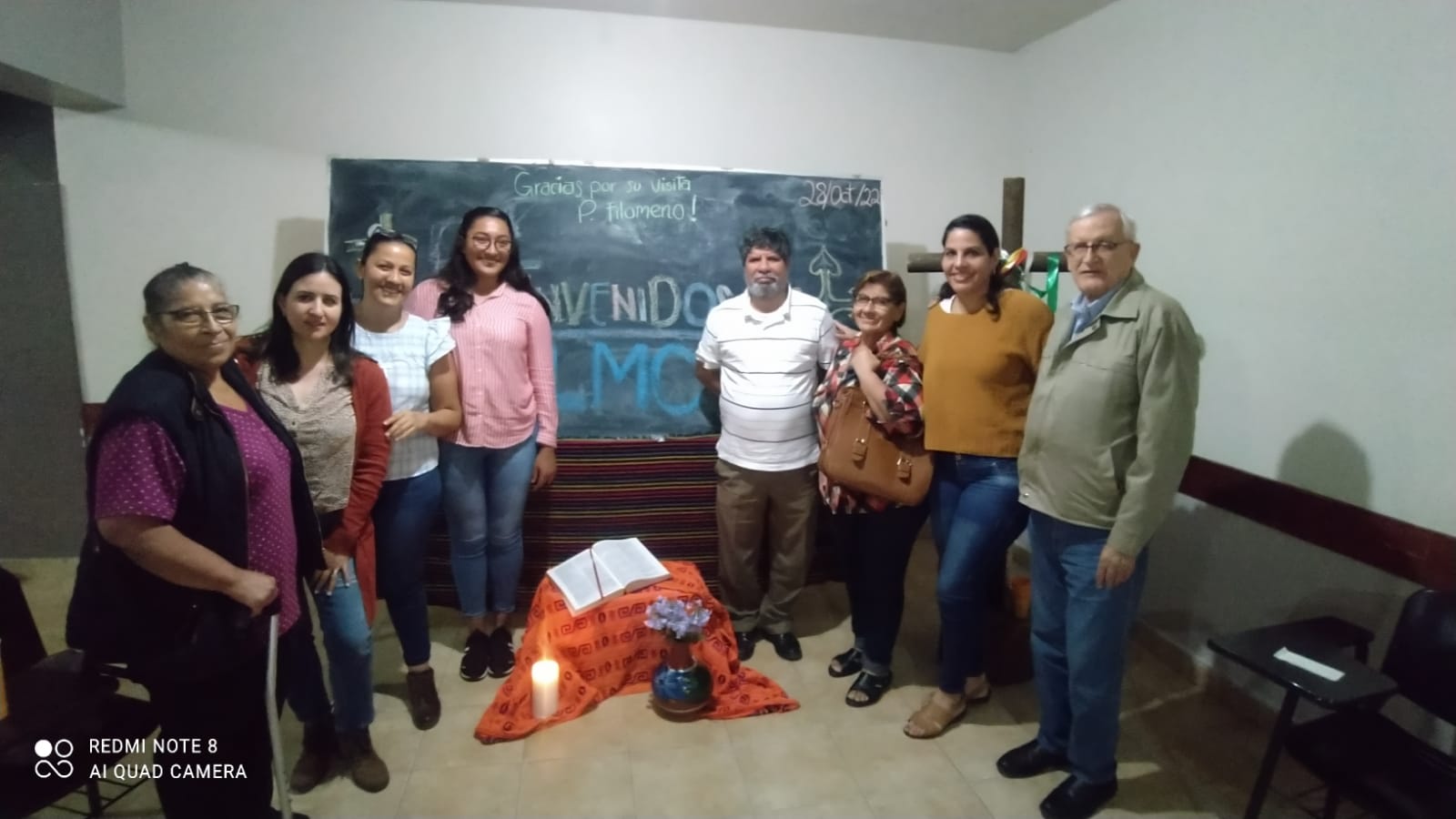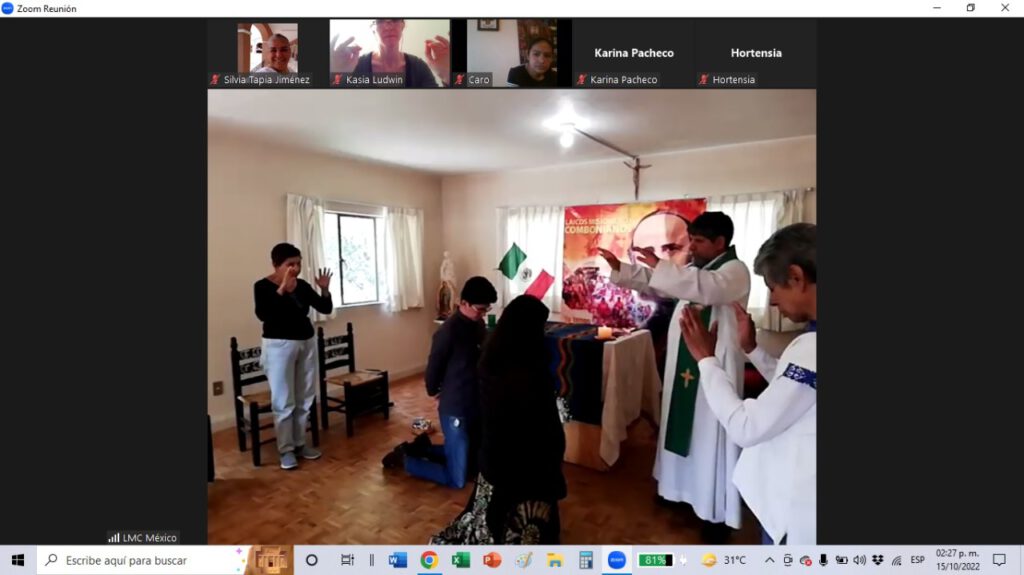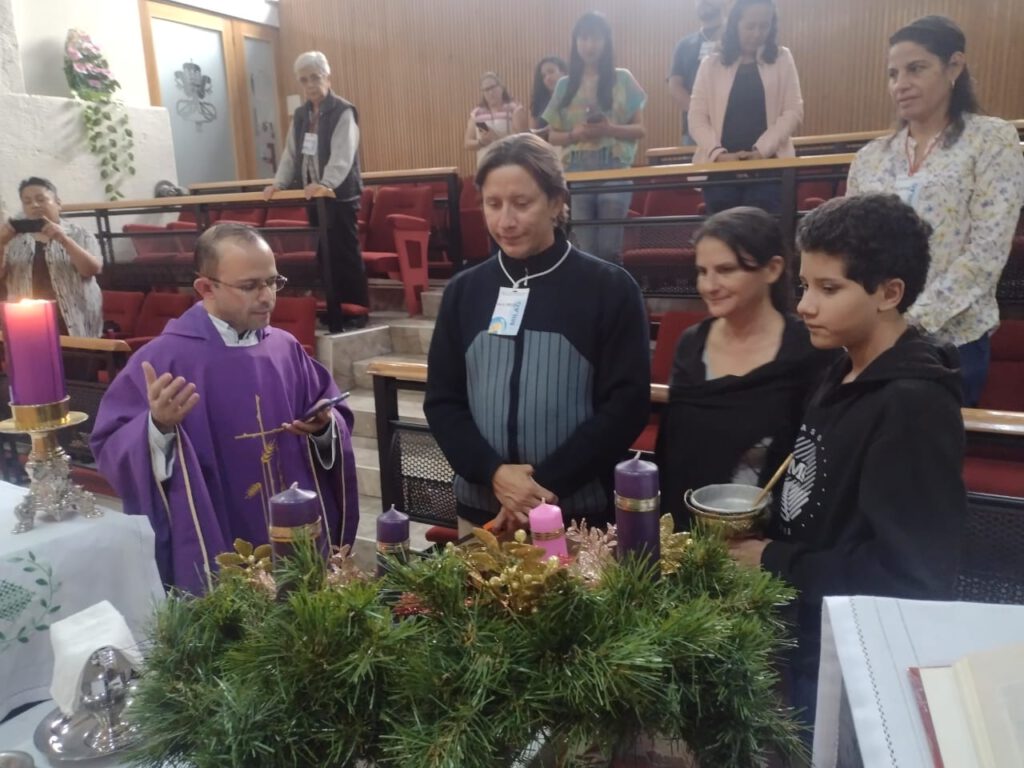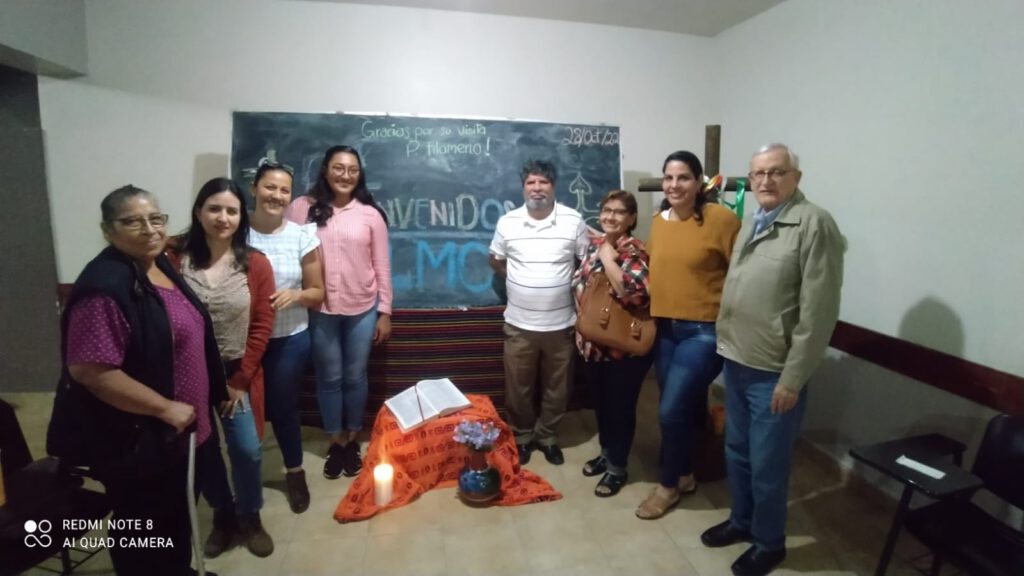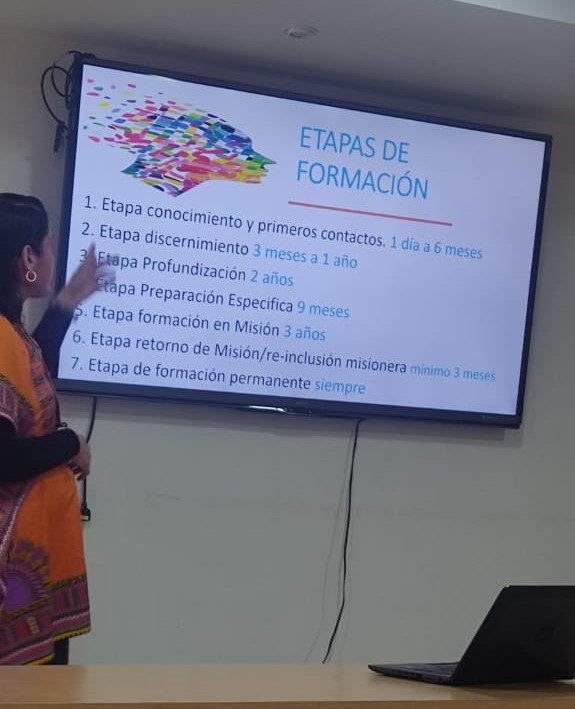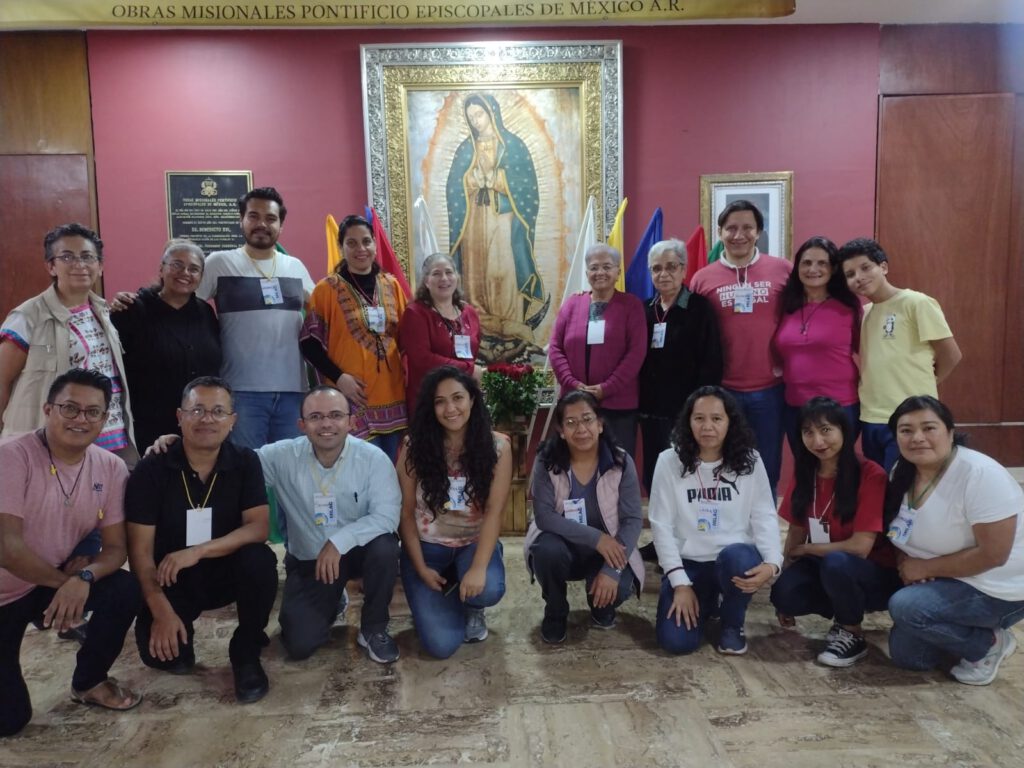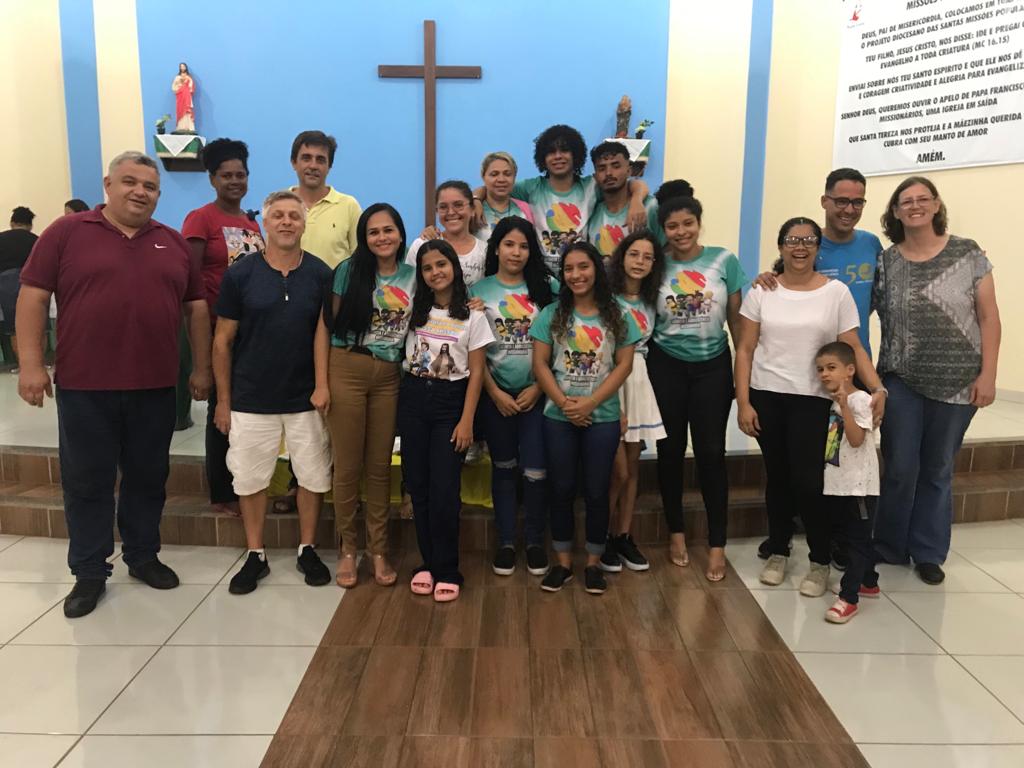
The Comboni Lay Missionaries of Brazil began the year 2023 with the organization of the face-to-face meeting of the CLM Formative Itinerary that took place from January 15 to 23, at Piquiá in Açailândia/MA. This region is one of the oldest and most continuous presence of the CLM and is a reference point for the work as Comboni Family in the Cause of Justice and Peace and Integrity of Creation (JPIC).
Leonel from Curitiba/PR, Dhenny from Balsas/MA, Diana from Fortaleza/CE and Tranquillo from Serra/ES participated in this beautiful moment of formation, sharing and visits.
This period of living together aims to be a special moment in the discernment process that is already entering its second year, in view of the call of the CLM to serve the Kingdom. It is an opportunity to deepen on Vocation as a call from God, the option and the lifestyle and mission. During these days, the theme of the Social Teaching of the Church was emphasized, with a focus on JPIC – Justice, Peace and Integrity of Creation, with theoretical formations and visits made to various existing initiatives in the region.
An important moment to reread life and faith and, as baptized people, to rediscover the missionary dimension. “Am I baptized? Then I must be a missionary, otherwise I am not a Christian” (Pedro Casaldáliga).
On the rails of love and friendship our train travels through life.

They were days of learning, living together, and getting cozy. Our itinerary, just like a train trip, takes us to visit places, enjoy the landscape, and enjoy the conviviality of those who share the same faith and walk the same path.
Coming from the four corners, gathered in the small and stunning Piquiá, four people (Diana, Dhenny, Leonel and Tranqüillo) who seek to know and to get to know each other, to learn and to teach, to experience and to dream, together for one more step towards the Comboni Lay Missionaries (CLM) station. This will not be the final station, but the first one, the one that will allow us to follow even more distant trails and tracks.
In our backpack, only what is necessary: the Word of God, a few clothes, many doubts and fears, some small change, and an enormous desire to live it all. We are counting only on our spirituality and on dedicated and abdicated people: Cristina, Marcelo, Adriana, Alexander, Father Carlos, João Carlos, Dida, Father Joseph, Flávio, Liliana and Father Silvério. People who have traveled these paths in the most varied ways and means. People who have opened roads and laid tracks.
Our train set off and on its way received people. People who had fun, people who suffered. People who taught us a lot, not only with their words, but with their actions, their attitudes, and with their lives. To believe that we are transforming agents. That we transform harsh realities of exploitation, deceit, and death into a kingdom of life, sharing, and faith.
Behind bars, we are able to recognize those people who are unwanted, mistreated and excluded from life. People who are able to smile and live again, all it takes is for a young person to feel uncomfortable with the suffering of others, to put together their knowledge and their will, and to serve on the frontiers of imprisonment. Marcelo, thank you for teaching us that stubbornness makes us remove bars and walls in our lives and in the lives of many others.
We got off the train to meet the people of Piquiá. We visited, we walked through hot and dusty streets. But we didn’t walk alone. We counted on the company and the joy of serving Mr. José Albino, Mr. Celso, Dona Margarida and so many other people who come together to celebrate faith and share life. And off we went. In the midst of the people. The sun that illuminates the path and leaves a mark on our skin. We are marked by the words and smiles received. By eyes that don’t see, by hands that don’t touch, by people who are bedridden and badly treated, but resilient and strong. People of faith.

On these paths of life, we are required to make choices. Faced with a reality we have the road to the left and the road to the right. Our answer will always be yes. We will always make the decision to take the road that leads to the Kingdom of God and the poor. Alexander is one of those few who had the courage and the willingness to say the Yes to vocation. A vocation to place himself in the midst of the poor, to serve the most needy, and to help the socially invisible. Alexander teaches us, with his Spanish Portuguese, to learn hard lessons of detachment, to leave the comfortable place in which we were born and forged. With his doubts and questionings, his will to get things done, Alex (as we call him) boards our train and travels with us all along this trail.
To be continued…








